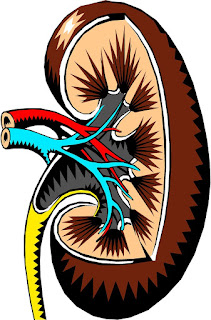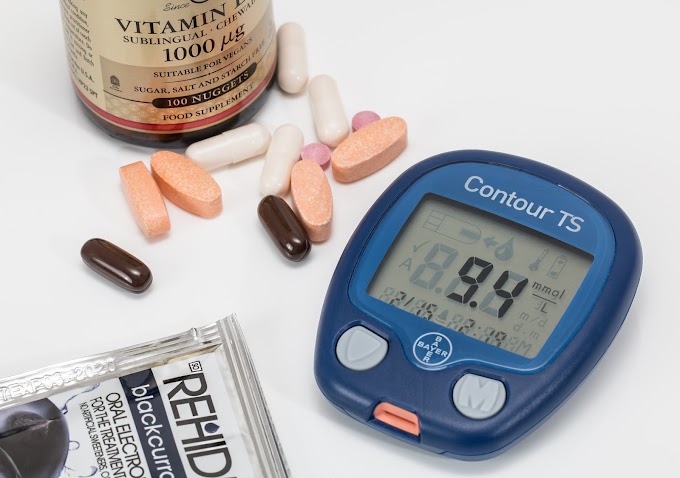7 living rules to protect kidney health
Once the kidneys are damaged, they are difficult to recover. If you have chronic kidney disease, you become vulnerable to many other diseases, and in some cases you need dialysis treatment, taking good care of the kidneys is essential for a healthy old age.
According to Korea's 2014-15 National Health and Nutrition Survey, 1 out of 9 adults (10.6%) is considered chronic kidney disease, and based on the annual population in 2017, it is estimated that 4.6 million people nationwide have chronic kidney disease. do. However, according to the data from the Health Insurance Review and Assessment Service, the number of patients treated for chronic kidney disease in 2017 was 203,978. That is, only 4.4% of all patients appear to be aware of and treat chronic kidney disease.
The'World Kidney Day', which marks the 14th this year, also emphasizes prevention and early diagnosis of kidney disease, and in particular, encourages the world to go forward with such care for everyone. On March 12th, “World Kidney Day”, let's point out wise kidney management techniques in daily life.
Which people are prone to kidney disease?
As you age, you are more susceptible to kidney disease, but diabetes, high blood pressure, and obesity are risk factors for chronic kidney disease. In 30 to 40% of patients with diabetes, kidney disease is combined. Therefore, diabetic patients should check kidney function and proteinuria once a year with blood and urine tests. If hypertension is not controlled in the long term, it damages the glomeruli of the kidney, a mass of microvascular. In particular, since most of the patients with kidney disease are accompanied by high blood pressure, if hypertension occurs at a young age (essential hypertension occurs well after 40s), there is a high possibility of hypertension accompanying kidney disease.
In addition, people with a family history of kidney disease are also at high risk. Among kidney diseases, polycystic nephropathy and some glomerulonephritis are hereditary, so if you have a family history of kidney disease, you should be regularly tested for kidney disease.
Lastly, the kidneys are often acutely damaged due to various diseases or complications of the treatment process, and if recovery is not well done after the acute injury, the kidney remains as chronic kidney disease. Therefore, patients who take various drugs, chemotherapy, organ transplantation, and heart/vascular surgery are also at high risk for kidney disease.
To prevent kidney disease, reduce obesity and control blood sugar and blood pressure.
Reducing obesity, a risk factor for kidney disease, and controlling blood sugar and blood pressure are the most important ways to prevent kidney disease. In addition, it is essential to practice a low-sodium diet and quit smoking.
Some of those who enjoy salty food and smoke have a healthy life, but in the high-risk group, they are pouring oil into the fire. Therefore, it is important that people who have at least one risk factor eat lightly, frequently eat foods high in dietary fiber, and stay away from cigarettes.
Contrary to what is known, on the other hand, there is no evidence that drinking a lot of water helps prevent kidney disease. However, in the case of kidney stones or polycystic nephropathy, drinking a lot of water can slow the recurrence or progression. Even if you inevitably take drugs that are toxic to the kidneys, it is good to drink plenty of fluids. Other than that, as long as you are thirsty, you can drink freely.
The most important part of prevention of kidney disease is early diagnosis. If the disease is detected early and managed well, it can stop or slow the progression. Fortunately, blood and urine tests can be used to determine kidney function and proteinuria. The national health checkup, which is available for free every two years, includes kidney function and proteinuria tests, so it is important to carefully examine the results after the checkup.
If you have kidney disease, smoking cessation, a low-sodium diet, exercise, and drug caution are essential
Having chronic kidney disease doesn't mean that there is no cure at all. Some kidney diseases can significantly improve kidney function with appropriate treatment, so if you are diagnosed with kidney disease for the first time, you should seek medical attention. Treatment will depend on the cause of the kidney disease.
The 7 living rules recommended for chronic kidney disease patients by the Korean Nephrology Association are as follows.
- to continue to treat high blood pressure and diabetes.
- cigarettes must avoid the excessive drinking break.
- singgeopge eat, adequate fluid intake.
- taking the necessary medicine for kidney function.
- Regularly check your kidney health.
- Maintain a healthy weight.
- The regular exercise.
It was confirmed that if the above-described lifestyle regimen was well followed, the survival rate was improved more than two times compared to patients who did not.
When you are diagnosed with kidney disease, you have the desire to treat the disease with food, but unfortunately, there is no food that can improve the kidney. Rather, if you eat a lot of one food, certain ingredients in that food can accumulate in your body, causing problems or damaging the kidneys themselves.
In other words, it is better to avoid consistently eating one healthy food, and eat evenly. The burden on the kidneys is salt, so minimizing the amount of salt consumed through food is the diet that people with kidney disease should strive for most.
If you have kidney disease, you are also very cautious about taking medication. Only essential medicines should be taken by adjusting the dose and interval according to the function of the kidneys. There are drugs that are toxic to the kidneys, so it is very important to avoid them.
Among the commonly used drugs, nonsteroidal anti-inflammatory drugs (NSAIDs) are representative, and there is a risk of acute kidney damage when taken by people with kidney disease.
There are about 20 kinds of nonsteroidal anti-inflammatory analgesics, and there are various brand names, so it is difficult to know just by looking at the names. This is why you should consult your doctor or pharmacist when taking pain medication.
In particular, there are many cases where non-steroidal anti-inflammatory pain relievers are included in the general cold medicine, and detailed ingredients need to be checked. In addition, side effects, usage, and dosage are not well known. Traditional drugs or health supplements can also cause kidney damage, so it is contraindicated in patients with kidney disease.
Want to learn more about kidney disease management?
Life therapy is very important in the management of kidney disease, and in order to practice it consistently, a good understanding of the disease must be preceded. This is why education for patients and guardians is important, and for this purpose, the Korean Society of Nephrology has held a national chronic kidney disease health class every year.
"Awareness of chronic kidney disease," the title of the video (Pt 3) named "Healthy eating in chronic kidney disease patients, '' Life Therapy of chronic kidney disease patients'
- E-book for dinner in the management of chronic kidney disease patients, organize divided into pre-dialysis stage / Hemodialysis / Peritoneal Dialysis
- Introduction to the smartphone application 'Heidi' for Dialysis Nutrition Dietary Management
World KidneyDay
World Kidney Day was started around the International Society of Kidney Foundations with the aim of promoting the importance of kidney health and preventing complications of various kidney diseases and chronic kidney disease. .
World Kidney Day, which is the second Thursday of March every year, started in 2006, and every year, more than 50 countries around the world participate in a campaign focusing on a specific theme on the kidney. Announcing and how to overcome habits, risk factors, kidney disease, which can cause a disease that can prevent disease for all their kidney health website:. Https://www.worldkidneyday.org





0 Comments